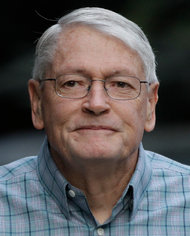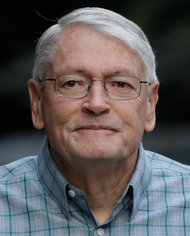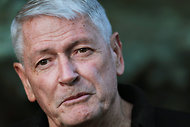There is no evidence so far, the police and security forces say, that Samantha Lewthwaite, the widow of one of the four suicide bombers who devastated London in July 2005, was involved in the Kenya attack, let alone was its “mastermind,” as the British papers are wont to suggest.
But it is also true that some of those who survived the massacre at Nairobi’s Westgate shopping complex said they thought they heard a woman speaking English among the attackers belonging to the militant Shabab Islamist group, most of whom are Somali.
Even the president of Kenya, Uhuru Kenyatta, speaking on television Tuesday night after the four-day standoff at the mall had ended, mentioned talk of a white British woman. “Intelligence reports had suggested that a British woman and two or three American citizens may have been involved in the attack,” said Mr. Kenyatta, adding, “We cannot confirm the details at present, but forensic experts are working to ascertain the nationalities of the terrorists.”
But his interior minister, Joseph Ole Lenku, and spokesmen for the Shabab, who have claimed responsibility for the massacre, said no women were involved in the operation.
Speculation rose higher on Thursday when Interpol issued a “red notice” for Ms. Lewthwaite’s arrest, requiring its 190 member countries to detain her pending extradition.
The Times of London said in a headline, “Worldwide Terror Hunt for the ‘White Widow,’ ” while The Sun, the tabloid owned by Rupert Murdoch, showed a photograph of her as a schoolgirl and said: “The angel-faced British girl who last night became … World’s Most Wanted.”
Unfortunately for the story line, however, the red notice was issued in response to a Kenyan request concerning events nearly two years ago, not the Nairobi attack. The notice said she was wanted by Kenya “on charges of being in possession of explosives and conspiracy to commit a felony dating back to December 2011” as part of a suspected plot to bomb cities along the Kenyan coast at Christmas.
Michael O’Connell, director of operational support for Interpol, based in Lyon, France, said that the issuing of the red notice was “a coincidence” resulting from an open investigation. “We’re at the stage where the details of this case and this individual have been able to be released publicly,” he told BBC World Service radio. “There are other people with red notices.”
But the red notice did indicate a heightened level of alert. Ms. Lewthwaite had previously been sought only by South Africa on suspicion of obtaining a fraudulent passport under the name Natalie Faye Webb.
Ms. Lewthwaite has now achieved “a semimythical status,” said Raffaello Pantucci, a terrorism expert at the Royal United Services Institute, a British research organization specializing in defense and security. But he, too, emphasized that there was little concrete evidence linking her to the Nairobi attack.
About 200 Britons are fighting alongside Islamist rebels in Syria and 100 in Somalia, Mr. Pantucci said. “Even if the numbers are small, it only takes one person to blow things up,” he said. “Foreign fighters are the umbilical cord that links the battleground to the home country.”
Valentina Soria, a counterterrorism expert at IHS Jane’s, a defense consultancy, said the Shabab had been trying to recruit foreigners and Somalis in the United States and Europe for three years “to offset the loss of domestic support.”
Ms. Soria pointed to Michael Adebolajo, 28, who on Friday pleaded not guilty to the gruesome murder of Lee Rigby, an off-duty soldier, in London last May, as one Briton who tried to travel to Somalia to fight alongside the Shabab.
Ms. Lewthwaite, a youthful convert to Islam, is the widow of Germaine Lindsay, who blew himself up on a London Underground train on July 7, 2005, killing 26 people as part of a larger attack that killed 52 and wounded hundreds.
The daughter of a former British soldier, Ms. Lewthwaite was born in Northern Ireland and grew up in the market town of Aylesbury, northwest of London. Raj Khan, a local councilor who knew the family, described her as “an average, British, young, ordinary girl” who suffered, he said, from a lack of confidence. “That’s why I find it absolutely amazing that she is supposed to be the head of an international criminal terrorist organization,” he said.
She met Mr. Lindsay, who was born in Jamaica, on an Internet chat forum when she was 17, two years after she converted to Islam. She studied religion and politics at the School of Oriental and African Studies in London. The couple married in 2002 and moved back to Aylesbury in 2003.
After the 2005 attacks, she said, “I totally condemn and am horrified by the atrocities which occurred in London,” and praised Mr. Lindsay as “a good and loving husband and a brilliant father who showed absolutely no sign of doing this atrocious crime.” She said her husband had fallen under the influence of radical imams, adding, “How these people could have turned him and poisoned his mind is dreadful.”
She was pregnant with their second child at the time. She has three children, ages 7 to 12, the youngest with her second husband, a Kenyan.
Little was heard about her until March 2012, when her name surfaced in a Kenyan investigation into suspected plans to bomb coastal cities during the Christmas holidays. The authorities said they suspected she had rented houses in Mombasa to assemble a bomb and was working with Musa Hussein Abdi, who was shot and killed in Somalia in June 2011. In December 2011 or January 2012, the police found a woman they believed to be Ms. Lewthwaite in his house, but let her go after she showed them a South African passport, now believed to be fake. She is thought to have then fled to Somalia.

Article source: http://www.nytimes.com/2013/09/28/world/africa/tale-of-white-widow-fills-british-press.html?partner=rss&emc=rss





